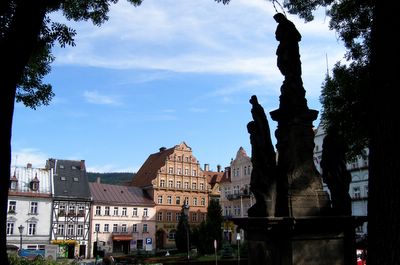
In June, Louise and I travelled to the old Silesian town of Duszniki Zdrój (Bad Reinerz) to attend a reunion of the school where my father lived and worked in 1946 before he escaped to the West.

(l. to r.) Here's my dad Czesław at the main ceremony of the reunion, with Duszniki mayor Bolesław Krawczyk, Director Elżbieta Ziembińska of the children's vacation home which is now located in the old school buildings, and Grażyna Świtoń-Pawlicka, an official responsible for the development of tourism in the Kłodzko region.
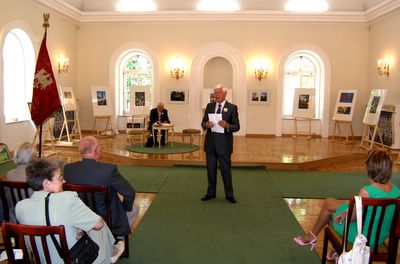
As a guest of honour, he gave one of several speeches during the opening ceremonies in the town's concert hall, June 25, 2005.
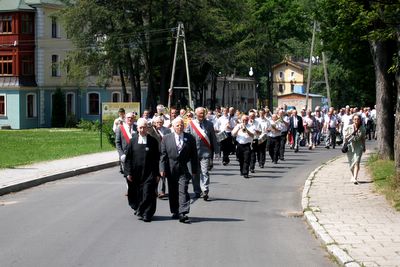
Afterwards, everyone marched, accompanied by a brass band, from the concert hall to the old school for the unveiling of a monument commemorating the school and the Christian Brothers who established it. Leading the parade is Brother Stanisław, one of the original founders of the school, with Dr. Wiesław Nikodem of the Wrocław Medical Academy, who was one of the pupils. Nikodem's oldest brother Bonawentura was another founder of the school, which was known as Orlęta, or Young Eagles, and was mainly a school for boys who were orphaned during the Second World War.
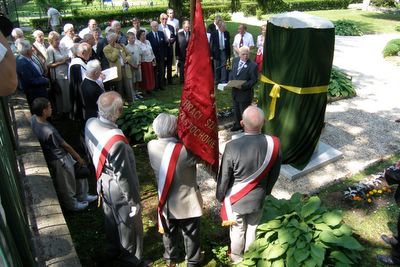
There were more speeches before the unveiling of the monument.
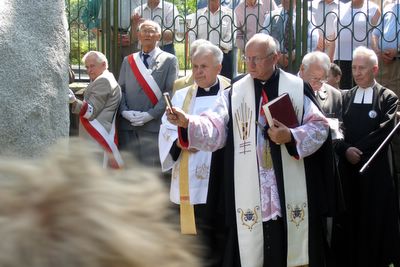
After the unveiling the monument was blessed by a team of priests.
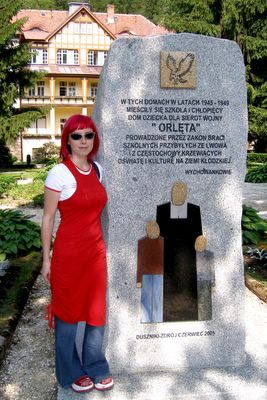
The artist who designed the monument was there. Her name is Ewa Solima. She may look like a sweet little girl, but she already has the distinction of having created the heaviest sculpture in Poland, a 20 metric tonne elephant made out of a single block of granite. She also designs handbags and shoes. That's the main building of the school behind her.
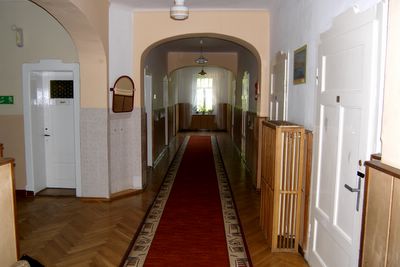
Walking through the halls of the old school I felt as though I had travelled backward through time, and met with ghosts from the past.
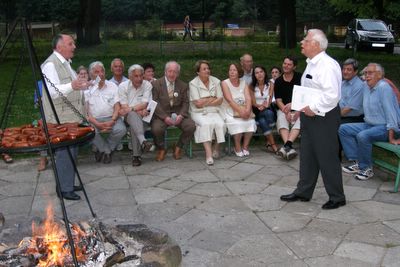
That evening, the old boys sat around fire, roasting sausages, and singing old French songs like Il était un Petit Navire.
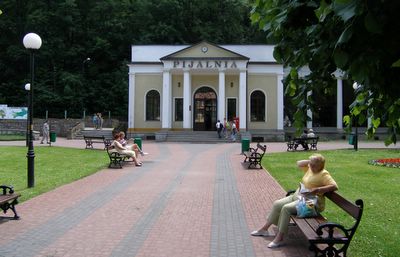
When the reunion ended, Louise and I decided to stay a few more days. Duszniki is a spa town, and the curative properties of its mineral springs have been recognized since the 15th century. There is an elegant pump room in the park. Until now you could drink the water free of charge, but as capitalism tightens its grip on Poland, the spa is preparing to charge an entrance fee.

In addition to taking the waters, we also signed up for some treatments. The clinic offers a range of treatments including natural mineral and conifer-needles baths, bilberry mud compresses, hydrotherapy, saline inhalations, electrotherapy, phototherapy, and therapeutic massages.

Our hotel, Santorium Moniuszko, was right in the spa, about 5 minutes walk from the pump house. On the way we would cross a little trout stream called the Bystrzyca Dusznicka.
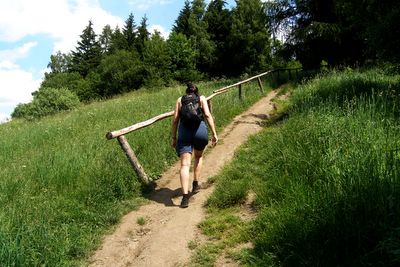
We also went hiking in the Góry Bystrzyckie mountains.

A favourite local destination is a hostel called Pod Muflonem. It's a cozy place with sleeping room for about 25. In the last century it attracted artists and bohemians from Wrocław (Breslau). The joke was that the place was called "Stille Liebe", but what most couples came for was "Lieber Stille", which I take to mean leiser Geschlechtsverkehr.

We stopped for a beer.
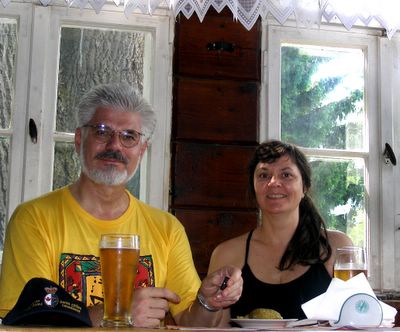
Remarkably,we found ourselves sitting at the same table where JW, Mary and I spent a rainy night during our hike through the area the last time I was here, 33 years earlier, in May of 1972.
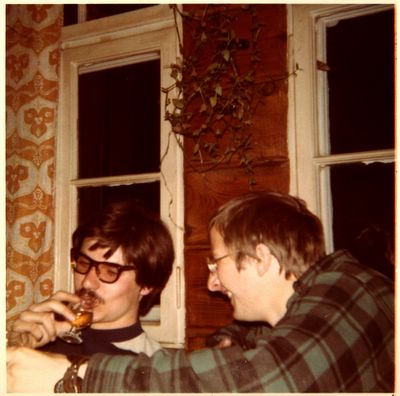
That was truly one of the best hikes of my life. That night we found ourselves on the side of the mountain after dark, in the falling rain. As we approached the hostel we could see welcoming rectangles of yellow light cast on the ground through the windows. An orchestra was playing polka music and we could hear laughter and the sound of people having a good time inside. We were hungry, and didn't know if there would be a vacancy, but someone opened the door when we knocked, and said there would be a room and a hot meal for us. We spent the rest of the evening eating, drinking brandy, dancing and sharing a bond of friendship and cameraderie like I have rarely experienced since.
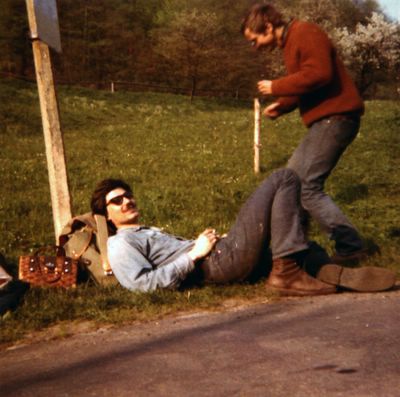
Once upon a time, there was a tavern
Where we used to raise a glass or two
Remember how we laughed away the hours,
Think of all the great things we would do.

Those were the days, my friend
We thought they'd never end
We'd sing and dance forever and a day
We'd live the life we'd choose
We'd fight and never lose
For we were young and sure to have our way
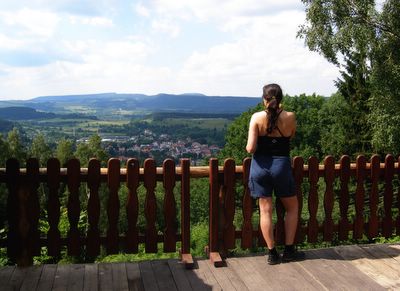
OK, back to the here and now. As you can see, there was a splendid view of the surroundings.

After a little rest we continued our hike.
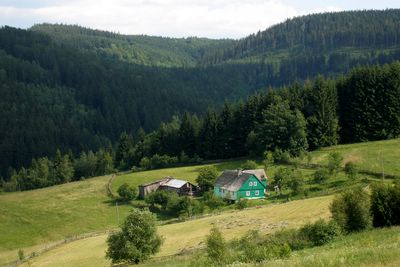
This farmhouse was almost the only other habitation up on the mountain. I thought I would be very happy to live in a such a place.
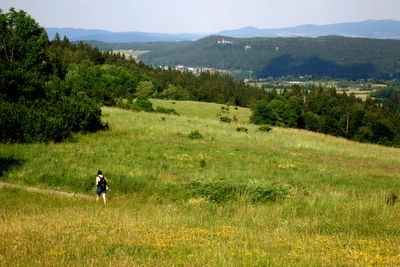
Some people say that's Frankenstein Castle up there on that mountain in the distance.
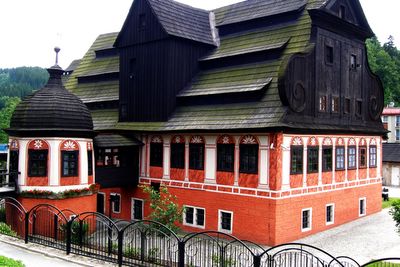
One of Duszniki's historical monuments is this 17th century paper mill.
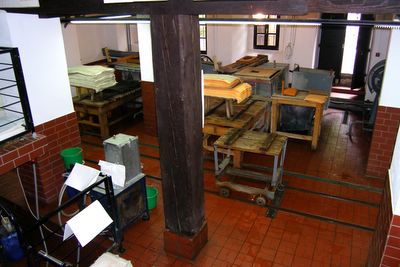
You can make your own paper inside.

Louise discovered that people used to be a lot shorter than today.
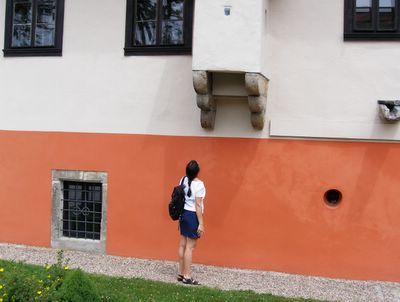
She also seems to have been fascinated by the plumbing.

We spent our last evening in Duszniki walking in the hills above the town, June 29, 2005.

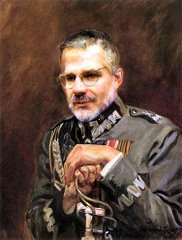
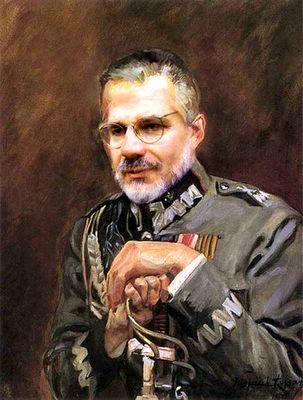
No comments:
Post a Comment